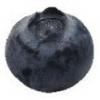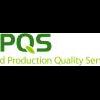Hello
I have a doubt about PRP or CCP??
The question is if I should consider the metal detector proccess as a CCP or as PRP operative?
What do you think?? ![]()
It is different the treatment as a PRP or as a CCP!!
Have you have any experience in your audits??
Thanks all of you.
Pedro Pablo (Spain)
- Home
- Sponsors
- Forums
- Members ˅
- Resources ˅
- Files
- FAQ ˅
- Jobs
-
Webinars ˅
- Upcoming Food Safety Fridays
- Recorded Food Safety Fridays
- Upcoming Hot Topics from Sponsors
- Recorded Hot Topics from Sponsors
- Food Safety Live 2013
- Food Safety Live 2014
- Food Safety Live 2015
- Food Safety Live 2016
- Food Safety Live 2017
- Food Safety Live 2018
- Food Safety Live 2019
- Food Safety Live 2020
- Food Safety Live 2021
- Training ˅
- Links
- Store ˅
- More


























